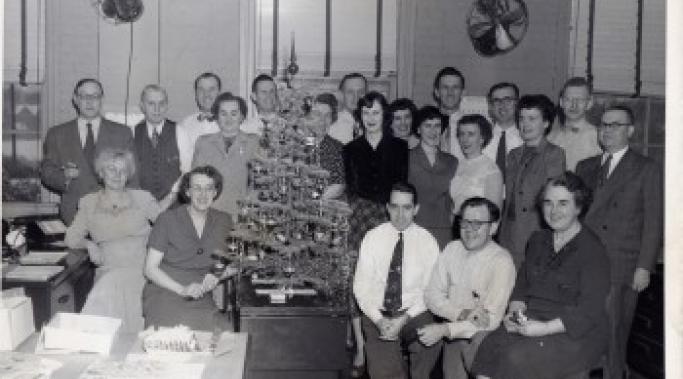Blogs
Love it or hate it, the holiday season always brings obligations and you have to handle holiday obligations in alcohol recovery. It can be tricky to navigate those obligations. For me, feeling overwhelmed is just as a big an alcoholism trigger as alcohol itself so I have to be careful in my alcohol recovery with regards to holiday obligations..
There are many ways to deal with holiday depression. While it is a myth that the suicide rate goes up during the holidays, holiday depression is no joke. Between the lack of adequate sunlight, the stress of being with our loved ones (I have four nephews and one niece age five and under), and loneliness at the absence of loved ones (my grandfather died on Christmas Eve when I was a child), we have a perfect storm for emotional over-stimulation. So, here are three ways to deal with holiday depression.
An important element of posttraumatic stress disorder (PTSD) recovery is to ask for help; but that didn’t come naturally for me (Are You Afraid To Ask For Mental Health Help?). My PTSD was caused by domestic violence while I was growing up in an alcoholic household. I learned at an early age to never ask for help and I had to overcome that learned behavior in order to recover. In my PTSD recovery, I had to learn to ask for help.
Finding out that you have posttraumatic stress disorder (PTSD) can be something that is hard to deal with and accepting your PTSD diagnosis is hard, too. It may be, quite simply, a diagnosis that you don't want to hear. However, I have learned that accepting my PTSD diagnosis has made living with PTSD much easier. There is a freedom and a positive side to life after I accepted my PTSD diagnosis and even learned to embrace it.
I know it’s predictable at this time of year, but I think it’s worth talking about some coping strategies for surviving Christmas with depression. Here are some ideas for how you can help minimise stress and prevent depression relapse over Christmas.
Anxiety and self-deprecation often go together. I have a pretty self-deprecating sense of humour. When I was younger, I would often intentionally say something unintelligent or wrong in order to get a quick laugh. This evolved over time. I learnt how to tell an overblown story about myself where I am both protagonist and punchline due to some personal, exaggerated foible or other. Even today, I can find myself mimicking the stereotyped words or actions of a caricature to endear me closer to friends who may already have a certain, fond view of me: a little nerdy, a little pretentious and slightly clumsy. Often in life it’s just too painful to take yourself seriously. Sometimes, for those of us with anxiety, it can even feel too utterly humiliating to take yourself seriously. After all, we anxiety sufferers are not always sure who we are exactly and, during darker times, what we have to present to the world in terms of an identity. When you have anxiety, you can be overly self-deprecating.
An alcoholic self-sabotages when she tries to evade negative feelings and consequently creates more problems in her life (Ways to Avoid Negative Coping Skills). Alcoholics commonly self-sabotage their relationships, sobriety, and career as they try to avoid feelings they often buried with alcohol. Most of the time, they are not even conscious that they are sabotaging themselves, unless it is pointed out to them. For this reason, it's important for alcoholics and their support network alike to understand why incidents of an alcoholic's self-sabotage most often occurs around a sobriety milestone or a significant life change.
Anxiety is often related to a sense of control; anxiety can be caused by a lack of a sense of control in one or more areas of life. This lack of control can cause a powerless feeling in the face of fears and worries. The lack of a sense of control can leave us feeling anxious, worried, or fearful when we don't think we should be. When you feel a vague, nagging worry, tension, edginess, or irritability but, frustratingly, can't identify a reason, perhaps the anxiety is connected to sense of control. How, exactly, can this sense of control cause anxiety? And what can we do about it?
You know when you feel accomplished honoring commitments to yourself? Yesterday was one of those days for me: I wrote for a few hours in my local coffee shop; I did some grocery shopping and cooking; and I called by therapist and my psychiatrist for appointments. I was most pleased by making plans with my treatment team because I'd fallen off for a while and the calls made me feel like I was getting back on track. I'd also stopped going outside to write, so getting out of the house for a period of time was an accomplishment in itself. You may wonder, to what do I owe this burst of self-care energy and why did I honor these commitments to myself. Well, I did it for a man. (What?)
Human beings are creatures of habit and, one way or another, we find ourselves shifting into routines, including binge eating disorder routines. Sometimes these habits are formed based on positive actions and helpful tips that will keep binging to a minimum and help us through the day. But, sometimes, it's all too easy to settle into a negative binge eating disorder routine, such as winter weather binge eating, and stay there until the habit becomes incredibly difficult to break.









